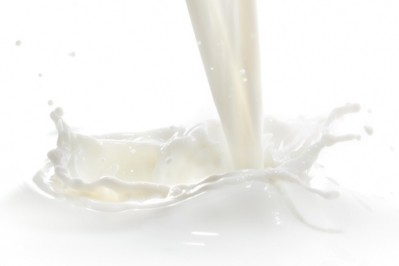DISPATCHES FROM IDF WORLD DAIRY SUMMIT 2015
Dairy sector faces supply challenge as products assume 'rightful place' in diet: IDF

During a press conference on the opening day of the IDF 2015 World Dairy Summit in Vilnius, Lithuania, the organization's president, Dr Jeremy Hill, said the sector will be faced "with a different challenge" as demand increases.
“The challenge, if we can get dairy to assume its rightful role in just about all diets, will be meeting supply,” he said.
“It will not be the current demand issues we are facing.”
Global dairy demand is expected to double by 2030 and triple by 2050, Hill told the packed press conference.
“That will present us with a different challenge – whether we can grow quick enough,” he said.
“But at the moment we’ve got to overcome some of the challenges that may constrain that, which relates to consumers understanding of the nutritional credentials of dairy and the fact that not only should they have it as part of their diets but as many of the meals they eat during the day.”
Dispelling myths
Debunking myths and pushing the nutritional value of dairy will be key to overcoming the current demand deficit, he said.
“There are gaps in the information,” Hill said of claims surrounding the saturated fat content of dairy. “Over the last 10 years we’ve pulled together to reach a consensus and to fill in these gaps.”
“It’s resulting in major change. It’s really having an impact.”
Adoption of the DIAAS (Digestibility Indispensable Amino Acid Score) protein quality measurement method by the likes of Codex Alimentarius could also be key to better consumer understanding of the nutritional value of dairy, he added.
Heard from Dr Jeremy Hill at opening #wds2015 press conference pic.twitter.com/FMpFtTzGEz
— DairyReporter.com (@dairyreporter) September 21, 2015Hill was joined for yesterday's press conference by Saulius Cironka, the Lithuanian Deputy Minister of Agriculture, and Bronius Markauskas, chairman of the IDF World Dairy Summit 2015 Organizing Committee.
Markauskas, who spoke with DairyReporter ahead of this week's conference, said yesterday that some had doubted Lithuania - a country with a population of less than 3m - was up to the challenge of hosting the World Dairy Summit.
“I trust these doubts have been dispelled," he said.








